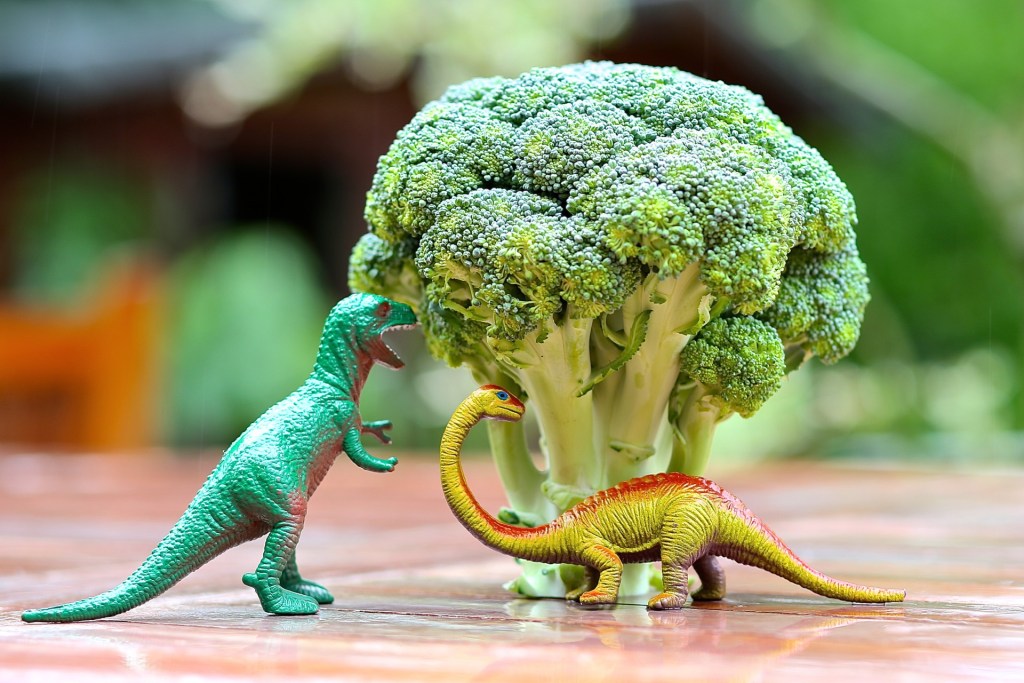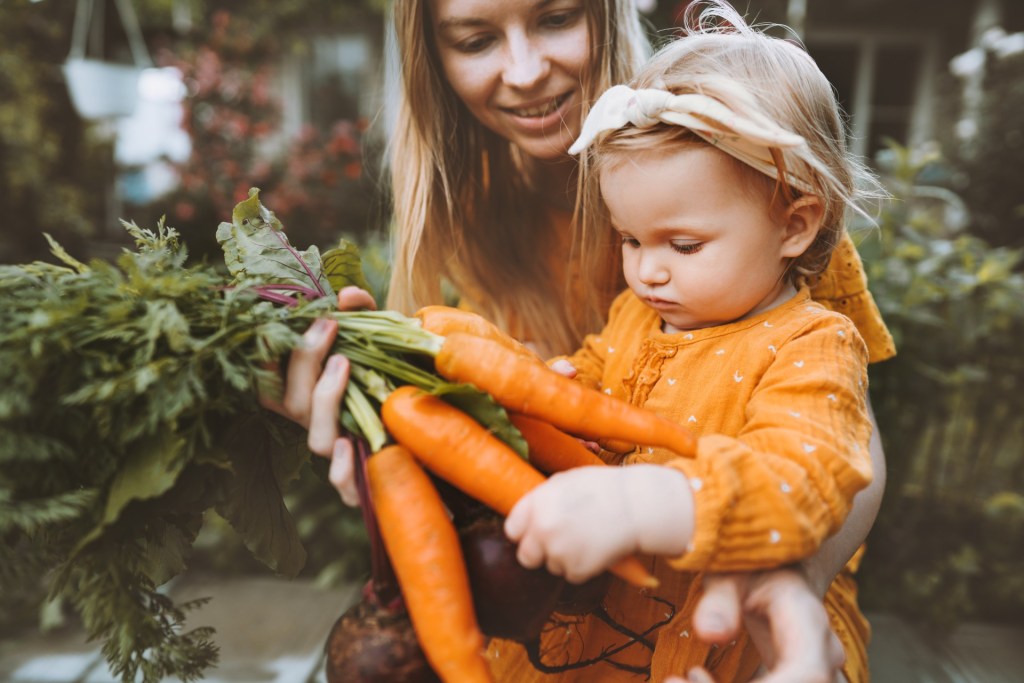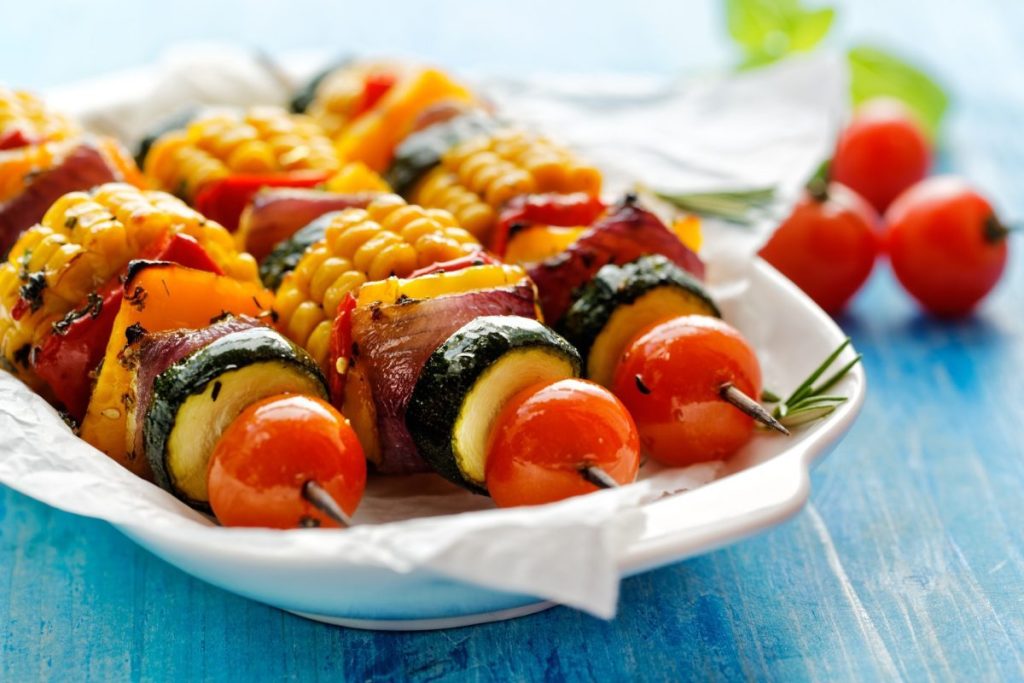Kids are picky eaters, plain and simple. Most children are influenced by smells and the overall appearance of food, sometimes not giving it an opportunity to be tried before they turn up their noses. Kids with more health-conscious parents may start to become more and more picky as their parents start to restrict meal plans or incorporate alternative ingredients for health benefits.
If you’re considering adding, changing, or introducing vegan-style meals or foods into your family’s meal plan, we’d like to help you locate options, share wisdom on encouraging your kids to at least try the dishes, and tips to keep them engaged in meal prep.

It’s time for a family meeting
If you have visions of healthier food options on your table and more variety in your family’s meals, there’s no better way to broach the subject with your kids than sitting down and talking about it first. Parents sometimes forget, but children are family members as well, and when children are included in big family decisions and plans, it helps tighten the bond and helps them feel important and included in the conversations. By openly discussing the possibility of incorporating vegan-style foods with your children ahead of time, it allows parents a chance to answer questions and field any kickback on the subject.
Plan ahead by coming up with yummy dishes or treats you and your kids can prepare that are considered vegan for them to try. By showing them vegan options can be just as delicious — if not more so — as traditionally prepared foods, you may be able to open their eyes to the world to vegan food choices.

Food (and patience!) grow here
If you are a gardener or lover of plants, you may already be taking a step in the right direction of introducing your 6-year-old to vegan options — by having a scrumptious veggie garden planted on your property. By incorporating the variety of fruits and vegetables your children — and your family — are growing out there, you’re doing your part by utilizing produce you love in new ways, some being vegan.
Growing your own produce really helps children better appreciate and understand where their food comes from and how delicious they can be when grown at home versus purchased in a store. Though not always feasible due to restrictions on space, surrounding area, or climate, growing your own food significantly increases your child’s interest in going vegan.

To grill, or not to grill — that is the question
To a lot of children, the issue of eating fresher and lighter meals with healthier substitutions has a lot to do with how the meal is prepared. Most children enjoy the outdoors in nice weather, and it’s a great idea during this time to pull out your grill to smoke out your next vegan meal. Grill marks add aesthetics and beauty to the dish; the char adds a bitterness that elevates it; and marinades or sauces take the meal over the top by hitting every note on a symphony of flavors.
A few choices to try with your kids to gently ease them into vegan meals are:
- Macerated berries with vegan whipped cream
- Grilled marinated summer squash, peppers, corn, and cherry tomatoes
- Black bean burgers
- Vegan “bacon” (with carrots!)
Plantbasedandbroke.com offers a wonderful array of beginner, kid-friendly vegan recipes for parents to try at home with their kiddos.
The biggest and most important piece of advice we can offer to parents when it comes to trying new vegan recipes at home with their young children is: Take it slow. Talk about the idea well before you plan on implementing these new diet regimens. This gives you a chance to process and answer their questions completely, while allowing them the same courtesy to process your response. It is a big undertaking to change your family’s diet and meal plan, so slow and steady will likely win this race. And, of course, if you’re planning on going completely vegan, make sure you talk to your child’s pediatrician about the best ways to make sure your child gets all the vitamins and nutrients they need.
Additionally, by discussing the desire to rework the daily meals ahead of time, you can plan extra garden space for “must-have-veggies,” further encouraging your littles into full investment in the idea. When children eat the fruits of their own labor, they feel a deeper connection to the food they are consuming, and thus encompassing the very idea of “veganism,” knowing what you eat.
Editors' Recommendations
- 7 kids’ school lunch ideas you can put together in no time
- Wow your kids with these fun facts about animals
- Why you should celebrate your kids’ inchstones
- 7 avocado-based baby food combinations your baby will love
- We love these easy, healthy snacks for kids




